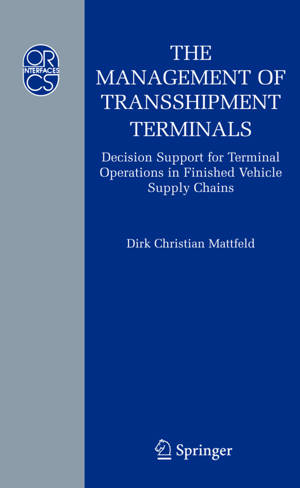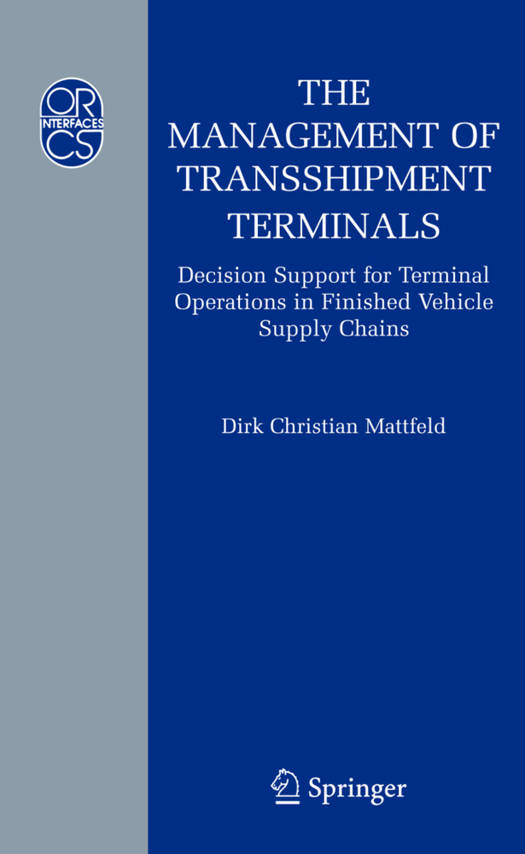
- Afhalen na 1 uur in een winkel met voorraad
- Gratis thuislevering in België vanaf € 30
- Ruim aanbod met 7 miljoen producten
- Afhalen na 1 uur in een winkel met voorraad
- Gratis thuislevering in België vanaf € 30
- Ruim aanbod met 7 miljoen producten
Zoeken
The Management of Transshipment Terminals
Decision Support for Terminal Operations in Finished Vehicle Supply Chains
Dirk C Mattfeld
€ 153,95
+ 307 punten
Uitvoering
Omschrijving
1.1 Freight Transshipment We observe an ongoing trend towards globalized industrial produc- tion. Multinational companies aim at strategic competitive advantages by distributing their activities around the globe. As a result, the in- dividual supply chains become longer and more complex. Next to the supply chain reliability, companies try to keep supply chains cost effi- cient and responsive, i.e. warrant short order fulfillment lead times (Siirie and Wagner, 2005). The above goals dictate low inventory levels at the stages of a supply chain as well as a high frequency of transports between the partners involved. Supply Chain Requirements. Detailed performance measures for a supply chain are provided by the Supply Chain Operations Refer- ence (SCOR) model (Supply-Chain Council, 2002). The SCOR model provides four levels with increasing detail of process modeling. In accor- dance to the process detail depicted SCOR metrics are defined for each level. Level 1 distinguishes metrics addressing the reliability of supply chains, their responsiveness, flexibility, cost and optionally their assets. On levels 2-4 these metrics are operationalized with respect to the pro- cess types source, make and deliver. Thus, as substantial activities of the deliver process, transport and transshipment are evaluated as an integral part of the supply chain.
Specificaties
Betrokkenen
- Auteur(s):
- Uitgeverij:
Inhoud
- Aantal bladzijden:
- 178
- Taal:
- Engels
- Reeks:
- Reeksnummer:
- nr. 34
Eigenschappen
- Productcode (EAN):
- 9781441940384
- Verschijningsdatum:
- 19/11/2010
- Uitvoering:
- Paperback
- Formaat:
- Trade paperback (VS)
- Afmetingen:
- 156 mm x 234 mm
- Gewicht:
- 272 g

Alleen bij Standaard Boekhandel
+ 307 punten op je klantenkaart van Standaard Boekhandel
Beoordelingen
We publiceren alleen reviews die voldoen aan de voorwaarden voor reviews. Bekijk onze voorwaarden voor reviews.











